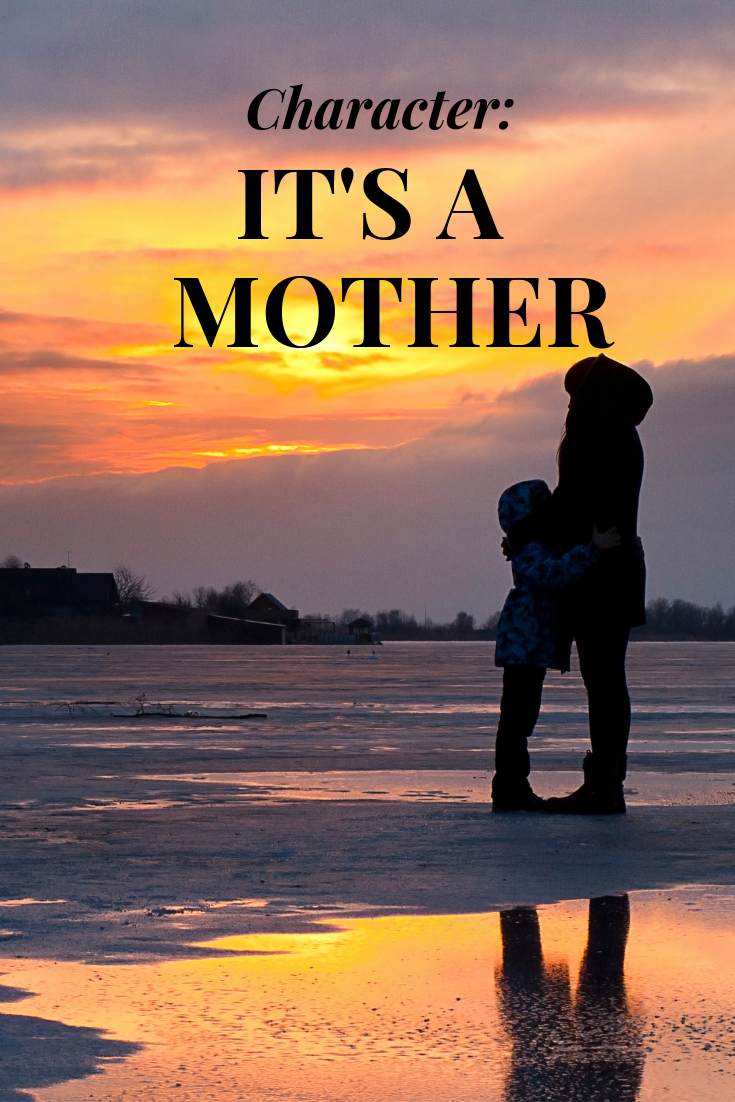
Romance is all about relationships, but it’s not necessarily all about romantic relationships. The romantic relationship(s) are primary to the book in question, but other relationships in the character’s life have formed who that person is and how they relate to their beloved. Even if their families never show up on the page, they’ve still played a role in developing who that person is. And of course the first and most important relationship in most people’s development is with the mother.
When we develop characters, we think about the need that will be filled by the time the book ends. (Some writers describe this as a “wound,” but that always seems melodramatic to me and conjures up images of St. Sebastian, so let’s just call it a need.) We could write about perfectly nice and happy people who meet up, have no issues that need to be healed, and traipse merrily down their road, but no one wants to read about that.

There are no stakes in that.
So often we do something with the family background. The mother is one area where we can really dig in and warp our characters, causing them all kinds of pain. Of course, we think that way because we’re in a modern, post-Victorian Western environment. People, mostly men, have been exalting a certain standard of (white, upper-class) motherhood for a very long time. When that figure is taken away, twisted, or shattered, our character now has an instant need that raises the stakes no matter which sub-genre we have.
James Bond was an orphan, raised by the state to be a super-spy who placed England above himself. Would he have had the same devotion to country if he had a “normal” mother caring for him instead?
We tend, as a culture, to view that maternal connection as sacred and as one that transcends life and self-preservation. A mother who is not completely wrapped up in her children is perceived as a monster. In legal proceedings, a mother who survives abuse while her child does not is harshly punished. We blame a child’s bad behavior on the mother, while the father is simply ignored.
In my Hunter series, Luis’ father murdered his mother when Luis was a young child. This loss had a profound effect on him, and he has a hard time finding his place in the world after that. In Rites of Spring, Cameron’s mother is an abusive murderer. This twisting of the maternal ideal limits Cameron’s ability to form attachments. In Professional Courtesy, Mike’s mother loses custody of her children when Mike is very young and this also has a profound effect on his self-image. Both mothers in Whirlwind, while present and accounted for, go out of their way to make life difficult for the main characters.
Not all of my characters lose their mothers. Donovan, in Hunter, has a mother who is active and involved in his life. His desire for her good opinion – and his desire not to add to her worries as she deals with a terrible husband – keeps him in the closet for a long time. Eric’s mother in Professional Courtesy is still present and is in fact a major character.
In Elle Keaton’s His Best Man, both main characters have mothers who are essentially monsters in most folks’ eyes. (To be fair, I’m not exempting myself from that number. These mothers are objectively terrible.) Rod’s mother is described in the past tense as distant, she disappeared at some point in his vaguely post-high school life, and was never heard from again. Even when Rod’s life is in actual danger, his mother continues to be absent. Travis’ mother makes Rod’s mother look like Mother of The Year, with increasing homophobic attacks that culminate in something unforgivable.
There are some awesome mothers in romance, too. Eden Finley’s Deke features a family with a simply fantastic mother, a supportive woman who is a delight to see on the page. Changing Lines by R. J. Scott and V. L. Locey is another one, with a mother who radiates comfort from every line.
Sometimes a story doesn’t call for including parents or family. It’s not always convenient or appropriate. That’s fine. The family still played a role in how your character became who they are today. Even if you don’t have the parents drop in for a visit, they still need to be part of your plan for the character. You still need to know how they grew up in order to understand who they are now. And the first relationship they have is generally with their mother.
